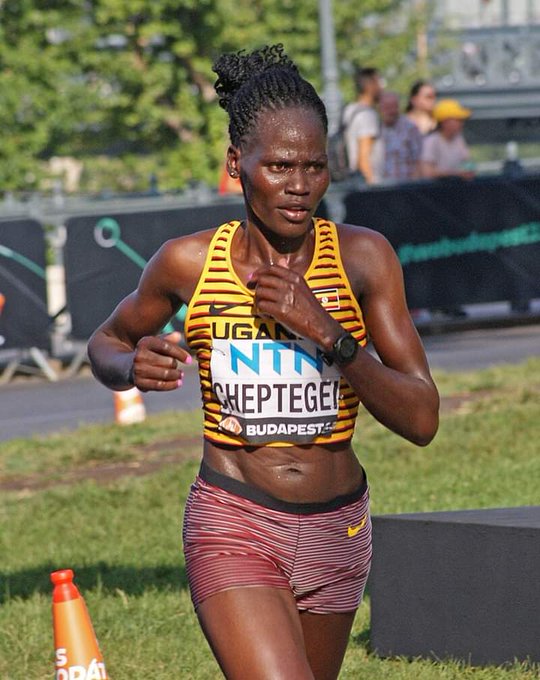Ugandan Olympic athlete Rebecca Cheptegei, 33, tragically passed away in a Kenyan hospital after suffering severe burns in an attack by her partner.
The long-distance runner, who had just competed in the Paris Olympics, is the latest victim in a series of violent incidents against athletes in East Africa.
Ugandan Olympian Rebecca Cheptegei has died after enduring severe burns from a domestic violence attack by her partner. The 33-year-old athlete, who represented Uganda in the women’s marathon at the Paris Olympics just weeks ago, succumbed to her injuries early Thursday morning at Moi Teaching and Referral Hospital in Eldoret, Kenya. Cheptegei had suffered burns over 75% of her body.
Owen Menach, a spokesperson for the hospital, confirmed that her condition rapidly worsened after her organs failed despite efforts to stabilize her. Cheptegei was placed under full sedation upon admission, but her injuries were too extensive for her to recover.
Her father, Joseph Cheptegei, expressed deep grief, saying he had lost a “very supportive” daughter, and is now seeking justice for the brutal attack. According to police reports, Cheptegei’s partner, Dickson Ndiema, allegedly doused her in gasoline and set her on fire after an argument over land she had purchased near athletic training centers in Trans Nzoia County, Kenya.
Ndiema, who also sustained burns during the incident, is still receiving treatment for burns on 30% of his body. Hospital officials reported that his condition is improving, but he remains under intensive care.
The Uganda Athletics Federation expressed sorrow over Cheptegei’s death on the social media platform X, condemning the act of domestic violence and calling for justice. Her death is part of a worrying trend of violence against athletes in East Africa, with several high-profile cases in recent years.
Cheptegei’s passing is not only a personal loss for her family but a tragic moment for the entire sporting community. The case has reignited calls for stronger actions to combat domestic violence and better protect athletes from similar fates.







